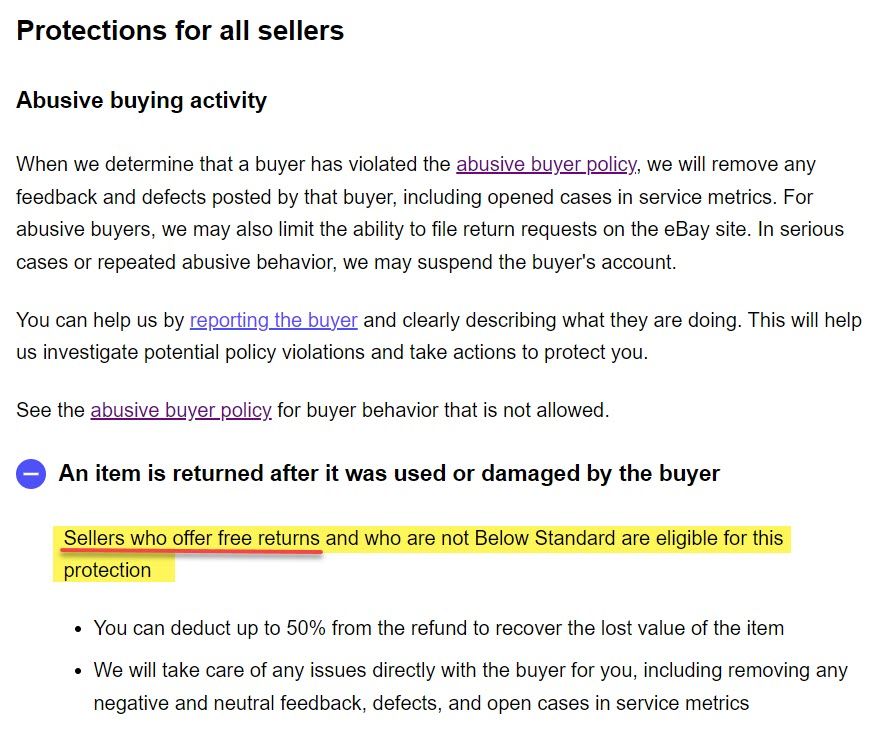Is It Time To Reconsider Free Returns In Ecommerce?
With inflation and increasing shipping costs weighing heavily on the industry, some retailers are rethinking free returns - is it time for marketplaces to shift the burden of return costs back to buyers too?
A recent Bloomberg report shows some big names are reversing course on free returns.

One of the foundations of online shopping has been free returns, but not anymore.
After years of subsidizing them, more retailers are charging customers to send back unwanted goods. It’s a risky move because shoppers have become accustomed to buying an item in multiple sizes and colors and returning what doesn’t fit for free.
The list of retailers cutting back includes Zara, Abercrombie & Fitch and Boohoo. In the US, the number of large retailers requiring a return fee has jumped from 31% to 40% this year, according to research by Narvar, a logistics software firm...
...Consumers experiencing the highest inflation in four decades are more frugal, increasing the chances that they second guess a purchase and return it, according to Amit Sharma, chief executive officer and founder of Narvar. Higher costs for transportation, energy and labor have made returns even more expensive, raising the stakes for chains to change behavior.
“That’s the big question: How do we reset expectations?” said Sharma, who previously held senior roles at Apple and Walmart. “Everybody’s losing money on shipping and returns.”
And even PayPal has recently ended their Return Shipping On Us program which had provided a refund up to $30 per transaction, capped at 12 per year, to offset the cost of returns on online purchases paid via PayPal.

That Bloomberg article caught the eye of several eBay community members who believe given the shift across the industry, eBay should ease up on the pressure for sellers to offer free returns and not allowing sellers to charge restocking fees.

Just thought you would want to know...before you purchase Christmas gifts from your favorite retailer "online" beware because there may be $4-11 (return fee).
One of the foundations of online shopping has been free returns, but not anymore.
After years of subsidizing them, more retailers are charging customers to send back unwanted goods. It’s a risky move because shoppers have become accustomed to buying an item in multiple sizes and colors and returning what doesn’t fit for free.
It costs time, money and labor for a merchant to " eat" unwanted merchandise. Not only that, but some of the items are now unsellable and disposed of.
Especially when you consider a lot of returns are because of buyer negligence, why should a merchant take a hit?
It's naive to expect merchants to not want to recoup those losses, nor should they.
But how long do we have to wait for ebay to recognize this as an "industry standard"? 12th of never?

A brief almost throwaway posting in today’s newspaper mentioned that some very prominent retailers who previously offered free returns on items bought online are now charging return fees. Not a “restocking” fee which is usually a percentage of the sale. They are charging a flat fee which seems to be in the $8.00 range.
I did a Google search for “retail store return charges” to flesh it out. This is just one of the MANY articles with additional information.
Of particular interest was the problem of people buying several different clothing items, trying them on to pick the one(s) they like and sending back the rest. Many prominent stores were mention. Amazon was mentioned in passing, eBay was not.
But clearly the attitude about free returns is changing. Whether or not, if ever, it gets to eBay is an open question. But it is turning.
While eBay does not require sellers to offer free returns, they certainly go out of their way to push them in that direction.
For example, eBay Australia touted all the "benefits" of free returns when they announced their partnership with HUBBED last month.


More importantly, certain seller protections and benefits do require sellers to offer a minimum of 30 day free returns in many categories, for example the Top Rated Plus program.


eBay did away with the ability for sellers to charge restocking fees back in 2018, however under the seller protection policy you may withhold up to 50% of the refund if the item is used/damaged...but only if you offer free returns.


The cards are still definitely stacked in favor of pushing sellers to eat return costs
Do you think eBay and other marketplaces should rethink these policies based on changing industry standards? Let us know in the comments below!


















